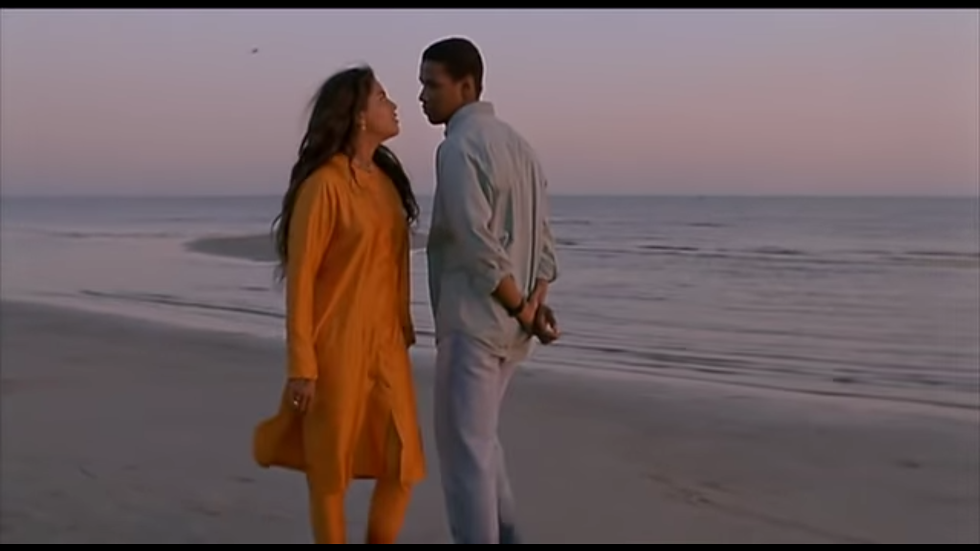When music heals:Khalid Mohamed reviews 99 Songs, the introspective story on the pursuit of purity.
- Digital Cahier

- May 29, 2021
- 4 min read
99Songs(2021, Netflix)
Produced and Story by A.R. Rahman
Directed by Vishwesh Krishnamoorthy

There is a line of dialogue – pitched twice which slapped me hard, “Music ne family ko barbaad kar diya.”
Music, imagery, entertainment, are considered ‘unholy’ among the unwaveringly orthodox elements -- a myopic view which has often been preached by the all-commanding imams from pulpits. Having worked with A.R. Rahman on a couple of projects (the Piya Haji track in Fiza and the score of Tehzeeb), I’ve seen him struggle within himself, torn apart. Even at the acme of his success, he has asked himself whether he should quit his metier, surrender himself to silence and devotion to a higher realm. Occasionally I could read his mind, interrogating himself am I doing the right thing?
Do fabulous fame, Oscars and awards galore, and more music assigments than he can tackle at any point of time, satisfy his inner voice which inevitably asks too many questions?For this there can be no corporeal, quick-fix answers.
My completely subjective take though may be off the mark. Yet, right or wrong, that’s how I viewed 99 Songs, an opulently-mounted 133-minuter musical, streaming on Netflix. The story and the suprisingly varied music score including superb jazz riffs (not to miss an excerpt of the classic Summertime) are Rahman’s brain-child, piloted by him with co-writer and director Vishwesh Krishnamoorthy, with the visual tapestry woven by cinematographers Tanay Satam and James Cowley.
Clearly, the overriding theme is the struggle by Jay, a young musician (debutant Ehan Bhatt, pleasant and underplayed), who has never quite recovered from the loss of his mother. She was born to sing, but was stymied by her husband when her musicianship overshadowed his male ego. A reasonable man normally, he couldn’t tolerate a life in which he becomes hanger-on (a common point to A Star is Born or its spin-off Abhimaan you might say).

However, it is not as simplisitic as it seems, unless you read between the frames. Rahman’s father, Rajagopala Kulashekharan had composed for as many as 52 Malayalam movies and then worked as a conductor. Rahman would assist him on the keyboard. After Kulashekharan’s death when Rahman was nine, the rental of his father's musical equipment provided his family's income. Raised by his mother, Kareema Begum, to whom 99 Songs is dedicated, the pre-teenager had to work to support his family.
The defining roles which his parents played in his evolution as one of India’s premier musician, are shuffled and left arbirary. Despite, his past being an indelible part of his inner being, the film doesn’t lapse into a dramatic-licenses-taken biopic. That would have been far too alien for the humble-to-the-core persona of Rahman, whose music -- like the uber popular Chhaiyan Chhaiyan – has frequently transmitted a spiritual and dare I say the Sufi spirit: a contemplation of the divine force, which is the backbone of the finest creative endeavours. From the lavish spread of tracks here, O Aashiqa, Sai Shirdi Baba, The Voice without Words and Jwalamukhi connect instantaneously.
So, the story centred on Jay’s combat to renew music as a panacea to purification, a healing of loss and the attainment of redemption, can be interpreted as Rahman’s own story to a degree, Jay being his alter-ego. The elements of love and mutual respect are represented by the mute Sophie Singhania (Edilsy Vargas, best-known as an American TV host, delivering a controlled performance), daughter of a calculating moneybags (Ranjit Barot, inspired casting),who challenges Jay to compose 100 songs before he can advance his music career.
Jay’s descent into the pits of drug abuse and a loveless relationship with Sheila the Queen of Jazz (Lisa Ray) of Shillong turn out to be a trial by fire, exacerbated by hallucogenic sufferance. His sheer haplessness is softened to the extent by the presence of a guardian angel of sorts (Manisha Koirala, flawless), who believes in the main protagonist’s artistry, and is sure that he will overcome the odds. “After all music is the last magic surviving in the world,” she reassures him gently.

That politics and filthy money are endemic obstacles in the path of the purity of music, are bunged in with a script-plant of a politician who mends his ways after a road accident. Plus there’s the ode to the nation and to the resilient strength of a mother, with a musical set-piece reminiscent of that stirring song Maa Tujhe Salaam, composed by Rahman way back in 1997.
The finale, wouldn’t be fair to reveal. Suffice it to say, its pitch is flashmatazz, fantasticated and finally foreceful. Director Krishnamoorthy emerges, undeniably,as someone who knows his shot-takings, opting for gliding views, a dollop of VFX, silhouettes, plus shaded as well as luminously lit palettes to stay close always to Rahman’s story which reveals far more about the composer than it camouflages.
To be fair, 99 Songs is demanding – you may relate to it, you may not. I can only hope that it’s never said that it was way ahead of its times. Because it is a work, ripped from the heart and mind, for right now.

Khalid Mohamed is a well known film critic and writer, producer, director.





A great review.....as if one is watching the film.....kudos